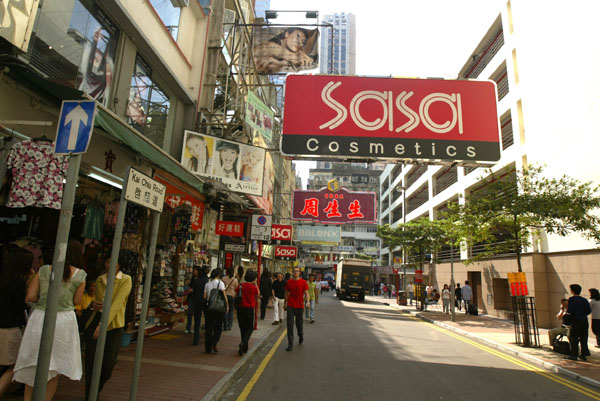 |
|
A view of Queen's Road Central, Hong Kong, in this file photo taken on Oct 18, 2004. [Photo/VCG] |
Shares of the city's biggest cosmetics seller are down 70 percent from a 2013 peak and seven of 12 analysts tracked by Bloomberg are advising investors to dump the stock. Sa Sa warned last month that profit fell by more than 50 percent in the year ending March.
It's a far cry from the post-financial crisis boom years, when Sa Sa rallied more than 1,600 percent as Hong Kong and Macao shop-owners profited from an influx of tourists from the Chinese mainland.
Since then, those shoppers have curtailed spending or started going elsewhere, and retail sales in Hong Kong have declined for 17 straight months. A gauge of consumer goods stocks, including Sa Sa, is down 31 percent since the start of 2014, almost twice the broader market's decline.
"The golden age for Hong Kong's tourism and retailers is over," said Arthur Kwong, Hong Kong-based head of Asia Pacific equities at BNP Paribas Investment Partners.
"We are not a big fan of this sector. Investors were really overestimating when the industry was trading at high multiples," he said.
At its peak, Sa Sa was valued at 24 times estimated earnings. According to the latest data, that's dropped to a multiple of 17, compared with 21 on a gauge of global retailers.
Sa Sa declined to comment, citing the company's blackout period in the run up to its earnings announcement on June 23.
The retail industry, one of the key pillars propping up the Hong Kong economy, has been hit hard by the economic slowdown and the campaign against corruption since 2012 that wrecked businesses for shops selling luxury goods. Hong Kong's economy unexpectedly contracted 0.4 percent in the first three months of the year compared with the previous quarter - the steepest drop since 2011, official data shows.
